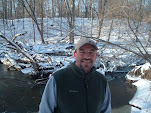"Coyote, old man, wanderer, where you going, man?"
—from “A Good Journey” by Simon Ortiz
Coyote was the trickster of Native American lore in North America. He was always mixing it up with the Native Americans wherever their paths crossed. Sometimes Coyote got the best of the human beings and sometimes those human beings bested Coyote and benefited from his blundering, braggart ways.
I believe that Coyote exists inside me. In fact, Coyote dwells in all humans in my philosophical understanding. Coyote is a spirit animal that takes control of me and causes all kinds of mischief. He makes me playfully roughhouse with grandkids, kids, nieces, nephews and all assorted little human beings. He makes my hugs a little too rough. Coyote nature persuades me to tell tall tales that my wife has trouble believing, even if I am telling the truth (or often times not). My conversation holds exaggerations and colorful bits of extravagance.
This strange Coyote behavior seems to give my journey through life a younger feeling pace as if by inwardly deceiving myself, I will not grow old quite so fast. And that puzzling Coyote behavior won't allow the surrounding human beings to ever totally understand what is "me." Fellow human beings shouldn't mind me this slight, sly mystery. There is nothing bad or wrong about its nature, it just travels with and preserves me...silent, sacred, peacefully alone among my fellow human beings.
And as I wander here and there as did Coyote, and my journey passes within your space and time, be prepared for my tricks, touching you with a bit of wonder about what is me.
And please, share some tricks of your own. Make us other human beings wonder where you have been and what roads lie ahead for you to travel, what tricks are up your sleeves.






